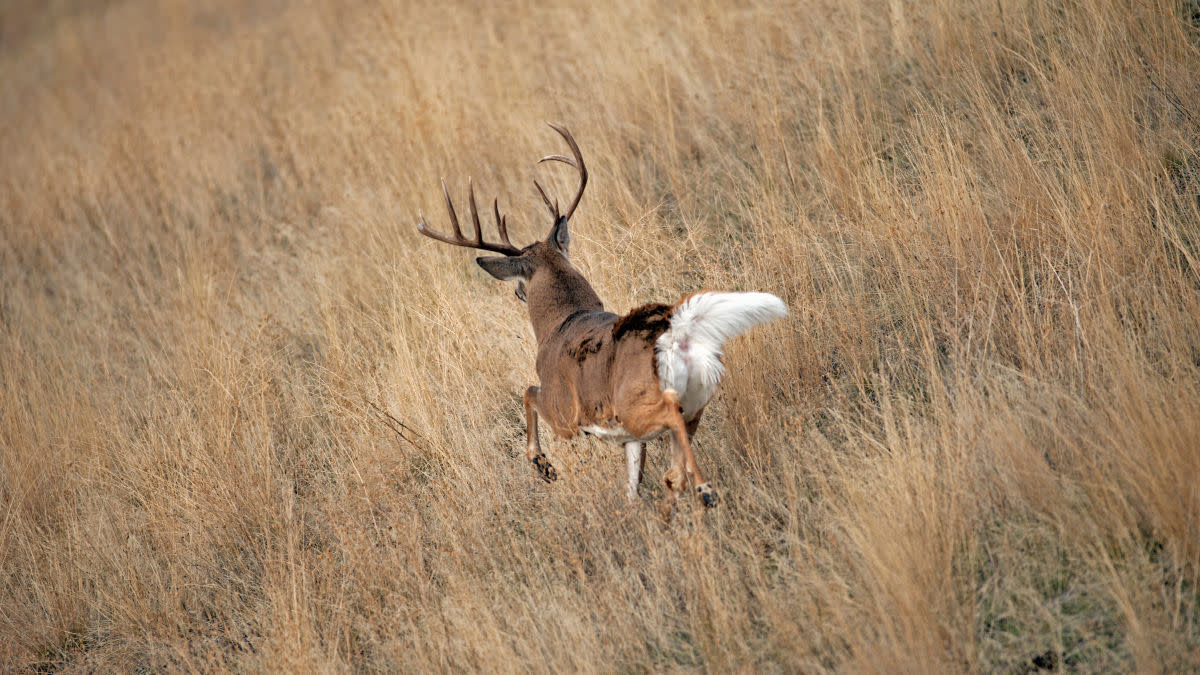
Misery loves company, so let’s begin here: You’re not alone. I’ve missed deer too. Plenty, actually.
I missed the first deer I ever took a crack at. I also missed a big Ohio 8-pointer a decade ago. I missed an opening day Michigan buck just a few seasons ago. And I missed a couple more in between. Every one of these experiences was miserable, depressing, upsetting, disgusting. I know how you feel. But they each came with a silver lining.
What I’ve learned from missing so many deer over the years has ultimately made me a better shot, a better hunter, and maybe in some small way, even a better person. At the heart of these lessons is the one essential question to ask after any bump in the road of life and especially after a miss. Now what?
Forgive Yourself
Lesson one is that we’re all going to have our misses. It happens to me, our friends, our neighbors, and even (or especially) the “pro” hunters on TV. If you hunt long enough, it will eventually happen to you. Prepare accordingly. This doesn’t mean we shouldn’t do our best to avoid such a scenario, but it does mean we can and should forgive ourselves when it happens. Dwelling on the past does no good. Moving on and learning does.
Back on the Horse
This brings me to Ohio. It was a windy, snowy December day. I’d spent hundreds of hours in the tree chasing a mature buck to no avail … and then there he was. I brought up my muzzleloader, aimed, and missed. Then missed again.
I realized that I could mourn the debacle or use it as a jumping off point. After giving myself a day to feel sorry for myself, and trust me, I did feel sorry for myself, I eventually chose the latter. Over the subsequent days I analyzed the scenario for clues as to what I did wrong and hit the range to regain confidence. A week and a half later I was back in the saddle with renewed optimism and a smile on my face. I killed a 5.5-year-old Michigan buck that night with a perfectly placed shot.
Know your Equipment
It was during this same post-Ohio period of self-examination that I identified a mistake of my own that’s common among many misses. I had a lack of preparedness with my equipment.
The blowing snow on that hunt made it impossible to accurately range the buck, so I estimated him at 125 yards and aimed a little high. Unfortunately, I zeroed my muzzleloader at 100 and never bothered to check farther out. Later, when I paced off the distance, I found it was closer to 150. My mistakes were multitude, but in the end it came down to not preparing with my equipment as well as I should have. Don’t let this happen to you.
Of course, even the most prepared hunter still has the occasional equipment-related miss. So, in the hours or days after striking out, I’ve learned that it’s crucial to examine your bow, gun, sight, scope, arrows, ammunition, accessories, and anything else that might contribute to an inaccurate shot. Finding a loose screw, bumped scope, or damaged arrow can be frustrating, but it’s ultimately an easy fix.
The Extra Second
Above almost all else, I’ve learned that shots are made or missed in the space of one extra second.
The very first deer I shot at was saved by a spindly tree and trigger-happy teen who was unable to take that one extra second. Instead, in an adrenaline-fueled blackout, I drew and released my arrow the very instant the buck came into range. I don’t recall even aiming. Many years later I did the same thing on a cool October evening with a big Michigan buck quickly walking out of range. I drew, rushed, and shot. Miss.
Those last few precious seconds are so important. Weeks, months, even years of preparation are pressed into this singular moment—a moment colored by passion, filled with excitement, and clouded by desire. It’s those emotions that end up undoing us. They cause us to speed through the steps, race toward the finish line, and rush through the motions. But it’s in that very moment, when we crave the end result more than ever, that we need to stop. Like in the instant before delivering an angry email, it pays to take a deep breath and clear your mind before hitting send.
Doing this, I’ve learned, is easier said than done. But the use of a mantra, breathing exercises, or controlled shot sequence can absolutely help. The key is preparing ahead of time with a thoughtful plan. Once you’ve made that plan and practiced until it’s second nature, add the element of pressure by shooting with friends or competing in tournaments.
Now What?
Ultimately, what I’ve learned after missing so many deer might be best summarized in the wise words of entrepreneur and activist Yvon Chouinard.
“The best cure for depression is action.” The same can be said for a miss.
Feature image via John Hafner.





